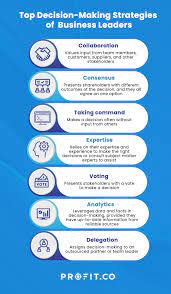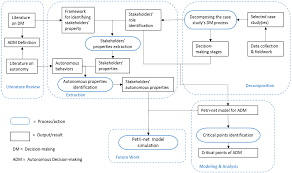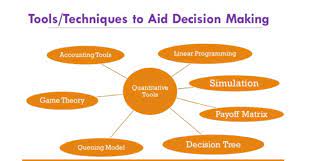Six tips for making a decision
- Consider the consequences: Think about how your decision will affect you and others in the short-term and long-term.
- Gather information: Research all of your options, so you can make an informed decision.
- Listen to your intuition: Trust your gut feeling, if it doesn’t feel right, it probably isn’t.
- Get input from trusted sources: Ask for advice from people who have experience in the field or who know you well.
- Don’t procrastinate: If you take too long to decide, it could be a sign that something is wrong with the choice or that you don’t feel confident about it.
- Be open to change: Remember that decisions are not always permanent and can be changed if necessary down the road.
Consider the consequences: Think about how your decision will affect you and others in the short-term and long-term.
Making decisions can be difficult, especially when it involves other people. It’s important to consider the consequences of a decision before making it. Taking the time to think about how the decision could affect you and others in both the short-term and long-term can help you make a more informed choice.
In the short-term, consider how your decision will affect you and those around you in the immediate future. Will it bring positive or negative effects? Will there be any unintended consequences? Thinking about these things can help you make a better decision now that won’t lead to regret later on.
For long-term effects, think about how your decision will affect you and others in the years to come. What will be the lasting impact of your decision? Will it lead to more opportunities or create more problems down the road? Asking yourself these questions can help you avoid making decisions that have negative consequences in the future.
Overall, taking time to consider the consequences of a decision is an important step when making any kind of choice. By thinking about how your choice could affect both yourself and others in both the short-term and long-term, you can make decisions with greater confidence and fewer regrets down the line.
Gather information: Research all of your options, so you can make an informed decision.
Making a decision can be a daunting task, but it doesn’t have to be. One of the best ways to make an informed decision is to gather information and research all of your options. This will help you weigh the pros and cons of each option and make an educated decision that you can feel confident about.
Start by making a list of all the possible options available to you. Then, research each one carefully. Look into the advantages and disadvantages of each option, as well as any potential risks or rewards associated with it. You may want to talk to people who have made similar decisions in the past or consult experts in the field for advice.
Once you’ve gathered enough information, take some time to reflect on it. Consider which option would be most beneficial for you in the long run, and which one would fit best with your values and goals. Make sure to also consider any potential consequences that could arise from your decision.
By taking the time to research all of your options thoroughly, you’ll be able to make an informed decision that you can feel confident about.
Listen to your intuition: Trust your gut feeling, if it doesn’t feel right, it probably isn’t.
Making decisions can be difficult, but trusting your intuition can be a great way to make sure you make the right choice. Listening to your intuition, or gut feeling, is an important skill that can help guide you in the right direction.
When faced with a decision, it’s important to take a few moments to listen to your inner voice. Your intuition is often based on past experiences and knowledge that you may not even be aware of. By allowing yourself to listen to this inner voice, you can often make decisions that are best for you in the long run.
It’s also important to remember that if something doesn’t feel right, it probably isn’t. Your gut feeling can often tell you when something isn’t quite right and should be avoided. If something feels off, it’s best to trust your instincts and move on from the situation or decision.
Overall, trusting your intuition is a great way to make sure you make decisions that are best for you in the long run. By listening to your inner voice and being aware of when something doesn’t feel right, you can ensure that you always make the right choices for yourself.
Get input from trusted sources: Ask for advice from people who have experience in the field or who know you well.
Making decisions can be a difficult and stressful process, especially when the stakes are high. It can be hard to know which path to take, but getting input from trusted sources can help.
When you’re trying to make a decision, it’s important to seek advice from people who have experience in the field or who know you well. These people can provide valuable insight into the pros and cons of each option and help you weigh your options. They also can provide guidance on how to make the best decision for your situation.
Talking with someone who has experience in the area you’re considering can give you an idea of what challenges you may face and what resources are available to help you succeed. It’s also helpful to seek advice from people who know you well, as they may be able to provide insight into your strengths and weaknesses that will help guide your decision-making process.
Getting input from trusted sources is an important part of making a decision. It helps provide perspective on potential outcomes, identifies potential obstacles, and provides guidance on how best to proceed. When making a big decision, don’t hesitate to ask for advice from those with experience or who know you well – it could make all the difference!
Don’t procrastinate: If you take too long to decide, it could be a sign that something is wrong with the choice or that you don’t feel confident about it.
Making decisions can be difficult, and it’s easy to fall into the trap of procrastination. However, it’s important to remember that taking too long to decide could be a sign that something is wrong with the choice or that you don’t feel confident about it.
It’s important to remember that there are many factors to consider when making a decision. It can be helpful to take some time and weigh up the pros and cons, but if you find yourself stuck in a cycle of indecision, it may be time to take a step back and reassess the situation.
It can also be helpful to talk through your options with someone else you trust – they may have different perspectives and insights which could help you gain clarity on the best course of action. Additionally, it helps to remember that sometimes making the wrong decision isn’t the end of the world – mistakes can often teach us valuable lessons which will help us make better decisions in future.
Ultimately, don’t let procrastination stop you from making decisions when necessary. If you take too long to decide, it could be a sign that something is wrong with the choice or that you don’t feel confident about it – so take this as an opportunity to reassess your options and gain clarity on what is best for you.
Be open to change: Remember that decisions are not always permanent and can be changed if necessary down the road.
Making decisions can be difficult, but it is important to remember that they are not always permanent. Being open to change is an important part of the decision making process. It allows you to be flexible and adjust your decision if necessary down the road.
For example, if you decide to take a job in another city, you may find that after a few months it’s not the right fit for you. Being open to change means that you can reassess the situation and make a different decision if necessary. You may decide to stay in the new city or look for another job elsewhere.
Being open to change also applies to relationships. If a relationship isn’t working out, it’s important to be open to the possibility of making changes or ending it altogether. This doesn’t mean giving up on love, but rather being honest with yourself about what is and isn’t working in your relationship.
In summary, being open to change is an essential part of making decisions. It allows you to reassess situations and make changes if necessary down the road. This can help ensure that your decisions are right for you and your lifestyle at any given time.




